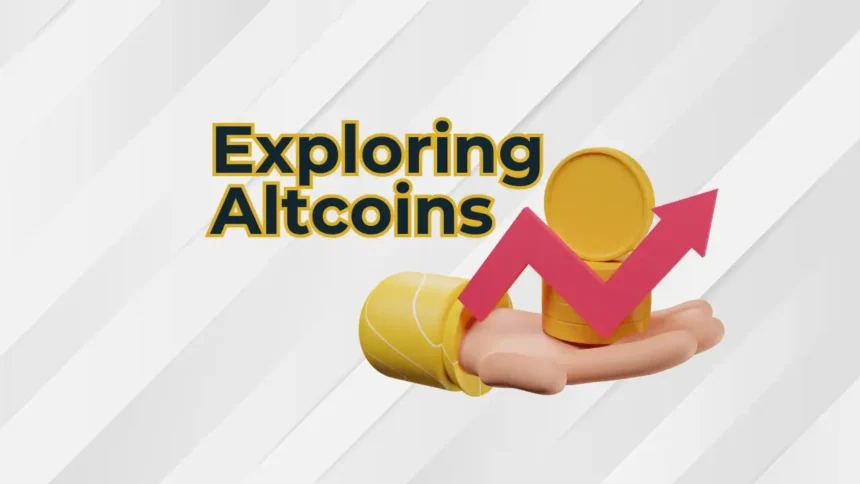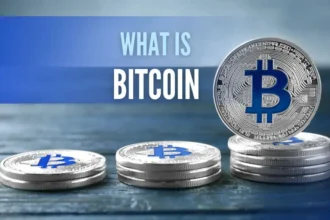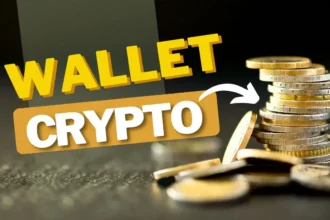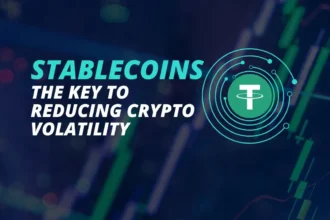In the realm of investing, diversification is a key principle. Just as one wouldn’t put all their eggs in one basket, savvy investors recognize the value of spreading their assets across various cryptocurrencies. Altcoins offer a way to diversify a crypto portfolio, potentially reducing risk and increasing the chances of significant returns.

What Are Altcoins?
Definition and Origin
Altcoins, short for “alternative coins,” refer to any cryptocurrency other than Bitcoin. They were created to address perceived limitations of Bitcoin and to introduce new functionalities and applications. The first altcoin, Namecoin, was launched in 2011, setting the stage for the myriad of cryptocurrencies we see today.
Key Differences Between Altcoins and Bitcoin
While Bitcoin remains the benchmark, altcoins often differentiate themselves through distinct technological advancements and use cases. For instance, some altcoins prioritize faster transaction times, lower fees, or enhanced privacy features.
Categories of Altcoins
Altcoins can be categorized based on their unique characteristics and purposes. Common categories include:
- Stablecoins: Cryptocurrencies pegged to stable assets like the US dollar.
- Utility Tokens: Tokens used within a specific ecosystem to access services or products.
- Security Tokens: Digital assets representing ownership in a real-world asset or company.
Popular Altcoins
Ethereum (ETH)
Ethereum is arguably the most influential altcoin, known for introducing smart contracts and decentralized applications (DApps). It has created a robust platform for developers to build and deploy blockchain-based applications.
Ripple (XRP)
Ripple aims to revolutionize the financial industry by enabling fast, cost-effective cross-border transactions. Its partnerships with major financial institutions highlight its potential to transform global payments.
Litecoin (LTC)
Often referred to as the silver to Bitcoin’s gold, Litecoin offers faster transaction times and a different hashing algorithm. It has been a staple in the crypto market since its inception in 2011.
Cardano (ADA)
Cardano distinguishes itself through its scientific approach and focus on security and scalability. Its development is based on peer-reviewed research and rigorous testing.
The Technology Behind Altcoins
Blockchain Variations
Different altcoins operate on various blockchain technologies, each with unique features. Some use their proprietary blockchains, while others build on existing ones like Ethereum.
Consensus Mechanisms
Consensus mechanisms are crucial for validating transactions and maintaining network security. Popular mechanisms include Proof of Work (PoW), Proof of Stake (PoS), and Delegated Proof of Stake (DPoS).
Smart Contracts and DApps
Smart contracts are self-executing contracts with the terms of the agreement directly written into code. They enable the creation of decentralized applications (DApps) that run without intermediaries, offering endless possibilities for innovation.
The Role of Altcoins in the Market
Innovation and Competition
Altcoins drive innovation by experimenting with new technologies and business models. They introduce competition to the crypto space, encouraging continuous improvement and development.
Niche Markets
Many altcoins target specific niches, addressing unique problems or catering to particular industries. For example, some focus on privacy, while others aim to enhance supply chain management.
Financial Inclusion
Altcoins can promote financial inclusion by providing accessible financial services to underserved populations. Cryptocurrencies like Stellar aim to connect unbanked individuals to the global financial system.
Investing in Altcoins
Risk vs Reward
Investing in altcoins carries inherent risks due to their volatility and the speculative nature of the market. However, the potential rewards can be significant for those who conduct thorough research and make informed decisions.
Portfolio Diversification
Diversifying a crypto portfolio with altcoins can mitigate risk and increase exposure to high-growth opportunities. A well-balanced portfolio might include a mix of established altcoins and promising newcomers.
Strategies for Investing in Altcoins
Successful altcoin investment strategies often involve staying informed about market trends, conducting fundamental analysis, and diversifying holdings. It’s essential to have a clear investment plan and be prepared for market fluctuations.
The Future of Altcoins
Technological Advancements
As blockchain technology evolves, altcoins are likely to benefit from advancements in scalability, interoperability, and security. Emerging technologies like sharding and layer-2 solutions promise to enhance altcoin networks.
Regulatory Landscape
Regulation will play a crucial role in shaping the future of altcoins. Clear regulatory frameworks can provide legitimacy and protection for investors, while overly restrictive measures could stifle innovation.
Potential Challenges and Opportunities
The altcoin market faces challenges such as regulatory uncertainty, technological hurdles, and market competition. However, these challenges also present opportunities for growth, innovation, and increased adoption.
Case Studies
Success Stories
Altcoins like Ethereum and Binance Coin have achieved remarkable success, becoming integral parts of the crypto ecosystem. Their growth demonstrates the potential for altcoins to achieve widespread adoption and significant value appreciation.
Lessons Learned from Failures
The altcoin market has seen its share of failures, often due to poor execution, lack of utility, or regulatory issues. Learning from these failures can provide valuable insights for future projects and investors.
Security and Altcoins
Common Risks
Altcoins are susceptible to various security risks, including hacking, fraud, and technical vulnerabilities. It’s crucial to stay informed about potential threats and take proactive measures to protect investments.
Best Practices for Safeguarding Investments
Implementing best practices, such as using hardware wallets, enabling two-factor authentication, and regularly updating software, can help safeguard altcoin investments.
Community and Development
The Importance of Developer Support
A strong developer community is vital for the success of any altcoin. Continuous development, bug fixes, and feature enhancements are essential for maintaining and growing the altcoin’s ecosystem.
Community-Driven Projects
Community involvement can drive the success of altcoins through initiatives like governance, funding, and marketing. Decentralized autonomous organizations (DAOs) exemplify how community-driven projects can thrive.
Use Cases of Altcoins
Real-World Applications
Altcoins are finding real-world applications in various sectors, from finance and supply chain to healthcare and entertainment. These use cases demonstrate the versatility and potential of altcoins to transform industries.
Adoption in Different Industries
Different industries are exploring the use of altcoins to streamline operations, enhance transparency, and reduce costs. For example, VeChain is being used to improve supply chain traceability, while Basic Attention Token (BAT) is revolutionizing digital advertising.
Altcoins and Regulation
Current Regulatory Environment
The regulatory environment for altcoins varies widely across different jurisdictions. While some countries have embraced cryptocurrencies, others have imposed strict regulations or outright bans.
Impact of Regulations on Altcoins
Regulations can have a profound impact on the altcoin market, influencing everything from investor confidence to market dynamics. Clear and balanced regulations can foster growth and innovation, while excessive restrictions can hinder progress.
How to Get Started with Altcoins
Setting Up a Wallet
The first step in getting started with altcoins is setting up a secure wallet. Wallets come in various forms, including hardware, software, and paper wallets, each offering different levels of security and convenience.
Choosing an Exchange
Choosing a reliable exchange is crucial for buying and trading altcoins. Factors to consider include security features, trading fees, available cryptocurrencies, and user experience.
Making Your First Purchase
Once you’ve set up a wallet and chosen an exchange, making your first altcoin purchase involves transferring funds, selecting the desired cryptocurrency, and executing the trade. It’s important to follow best practices to ensure a smooth and secure transaction.
Altcoin Market Trends
Historical Performance
Analyzing the historical performance of altcoins can provide insights into market trends and potential future growth. Understanding past market cycles and key events can help investors make informed decisions.
Current Trends and Predictions
Staying updated on current market trends and expert predictions is essential for navigating the altcoin market. Emerging trends, such as DeFi and NFTs, highlight the dynamic nature of the cryptocurrency landscape.
Conclusion
In conclusion, altcoins play a pivotal role in the cryptocurrency landscape, offering innovation, diversification, and opportunities for growth. By understanding the intricacies of altcoins, investors and enthusiasts can make informed decisions and capitalize on the evolving market. As the cryptocurrency space continues to mature, altcoins will remain a vital component, driving progress and expanding the horizons of digital finance.
FAQ
What are altcoins and how do they differ from Bitcoin?
Altcoins, or alternative coins, are cryptocurrencies other than Bitcoin. They often introduce new features and technologies, differentiating themselves from Bitcoin in various ways.
Are altcoins a good investment?
Altcoins can be a good investment, but they come with higher risks compared to Bitcoin. It’s important to conduct thorough research and consider your risk tolerance before investing.
How can I safely invest in altcoins?
To safely invest in altcoins, use secure wallets, enable two-factor authentication, and stay informed about market trends and security best practices. Diversifying your investments can also help mitigate risk.
What are some popular altcoins to consider?
Popular altcoins include Ethereum, Ripple, Litecoin, and Cardano. Each of these has unique features and potential use cases, making them noteworthy options for investors.
How does regulation affect altcoins?
Regulation can significantly impact altcoins by influencing investor confidence, market dynamics, and legal compliance. Clear and balanced regulations can foster growth, while excessive restrictions can hinder progress.












